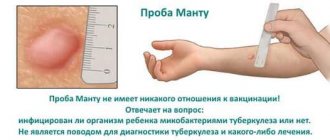A sore throat makes itself felt at least twice a year, causing a lot of discomfort. And if you are now a nursing mother, not every treatment will be suitable or safe. How to treat a sore throat while breastfeeding?
If you encountered this problem during pregnancy, you are probably familiar with the basic principles of “healing”. But let's figure out how a sore throat can hurt and what to do in each specific case, because, depending on the diagnosis, treatment for a sore throat during breastfeeding will differ.
Throat diseases
When treating a sore throat while breastfeeding, it is important to consider the nature of the disease. If you feel a sore throat, it is necessary to determine the nature of the disease. Most often this is:
- Sore throat - the tonsils become red and inflamed, the temperature rises to 38 degrees and above.
- Laryngitis - pain combined with hoarseness and dry cough. The voice may disappear. Symptoms usually appear due to hypothermia.
- Pharyngitis - hoarseness, redness, dry cough, runny nose, fever above 38 degrees. Most often it occurs due to diseases of the nasal cavity, infection, virus.
- Candidiasis – severe itching and blisters appear on the mucous cavity.
- Allergies - there may be a sore throat, a desire to cough, or mucus discharge from the nasopharynx.
What to do and how to treat it?
General scheme for hepatitis B
- Bed rest . Ask your loved ones to help you with the housework so you can rest for a couple of days.
- Drink plenty of fluids . Recommended for any viral and infectious diseases. Removes toxins, improves well-being, and prevents dehydration.
- Hygiene . Use only disposable tissues, and under no circumstances place them near the child’s bed. Wash your hands as often as possible, especially before contact with your baby. Wearing a bandage is also recommended.
- Treatment . If your temperature rises, take antipyretics that are allowed while breastfeeding. These include Paracetamol and Ibuprofen.
Basic methods of drug treatment
- Rinsing. Antiseptics Miramistin, Chlorgesidine, Furacilin are allowed during breastfeeding. They relieve sore throats and have an excellent anti-inflammatory effect. Also, do not ignore folk remedies.
Rinsing with chamomile infusion or sage will help suppress unpleasant symptoms and have an antiseptic effect. It is recommended to gargle every two hours.
The main causes of pain in the larynx
Pain in the larynx is a very unpleasant phenomenon, especially with breastfeeding. It is widely believed that a sore throat can be caused by a cold. The cause of the disease can be hypothermia, which causes inflammation of the mucous membrane. Also, transmission of nasopharyngeal viruses occurs through airborne droplets. Therefore, during breastfeeding, it is better to wear a protective mask in crowded places.
When a nursing mother has a sore throat, medications must be selected very carefully. To do this, you need to consult a doctor to diagnose diseases of the respiratory system, especially if there is an increase in body temperature. It is imperative to do an examination of the nasopharynx; very often, throat diseases spread to the nasal mucosa. The doctor will give recommendations on how to deal with cough and other symptoms during breastfeeding.
We recommend reading: Ketorol during breastfeeding: is it possible for a nursing mother?
If a diagnosis of tonsillitis or mucosal candidiasis is made, treatment should be timely, also taking into account hepatitis B. To clarify the diagnosis of candidiasis, it is necessary to undergo appropriate tests. If you have a runny nose or nasal discharge, you need to get tested for allergies; perhaps it was the cause of the inflammation.
If you become infected, you should immediately begin treatment prescribed by your doctor. You cannot self-medicate! You must take and use only approved medications.
How else can you help a nursing mother?
There are general recommendations to follow if you have a sore throat:
- Drink plenty of warm drinks. It is necessary to reduce the symptoms of intoxication and remove toxins from the body. This can be plain warm water, tea, fruit drinks or compotes.
- Bed rest. As much as possible, get more rest if you have someone to leave the child with. Ideally, during the period of illness, the baby should be picked up only to feed.
- Continue breastfeeding. Together with the milk, you pass on the antibodies and interferon to the baby, which he especially needs now. Even if he becomes infected, the disease will go away much easier with breast milk than without it.
- Hygiene and quarantine rules. Although there is some debate as to whether or not to wear gauze, it is best to wear one when approaching your baby. Do not forget to wash your hands with soap; during illness you need to do this more often than usual. To clean your nose, it is better to use disposable wipes and throw them away immediately.
- Antipyretics must be safe. During lactation, paracetamol and ibuprofen are suitable, but do not lower the temperature below 38° C with them.
So, we learned how to treat a nursing mother’s throat. And if it gets sick, you need to quickly take action and start treatment so that the infection does not go lower. Then nothing will overshadow the joy of motherhood.
Is it possible to breastfeed if your throat hurts?
The first logical question for a mother when she has a sore throat is: should breastfeeding be interrupted? If an illness is present, treatment should be started immediately, but breastfeeding should not be interrupted. During an infection, antibodies to the infection are produced in the mother’s blood, and the baby receives some of them through the mother’s milk. This way the baby is protected from bacterial attacks. It is important to wear a gauze mask (change every two hours), wet clean the house and open the windows often.
You can also destroy bacteria at home using tea tree oil - just moisten a cotton pad with it and place it next to mother and baby. It is allowed to lubricate the wings of the baby’s nose with oxolinic ointment.
What to do and how to treat it?
General scheme for hepatitis B
- Bed rest . Ask your loved ones to help you with the housework so you can rest for a couple of days.
- Drink plenty of fluids . Recommended for any viral and infectious diseases. Removes toxins, improves well-being, and prevents dehydration.
- Hygiene . Use only disposable tissues, and under no circumstances place them near the child’s bed. Wash your hands as often as possible, especially before contact with your baby. Wearing a bandage is also recommended.
- Treatment . If your temperature rises, take antipyretics that are allowed while breastfeeding. These include Paracetamol and Ibuprofen.
Basic methods of drug treatment
- Rinsing. Antiseptics Miramistin, Chlorgesidine, Furacilin are allowed during breastfeeding. They relieve sore throats and have an excellent anti-inflammatory effect. Also, do not ignore folk remedies.
Rinsing with chamomile infusion or sage will help suppress unpleasant symptoms and have an antiseptic effect. It is recommended to gargle every two hours.
- Tablets and lozenges. According to the E-LACTANCIA reference book, the drugs Faringosept, Septefrid, Strepsils are fully compatible with breastfeeding. Also, the tablets “Stop-Angin”, “Septolete”, “Sebidin” temporarily alleviate the condition and relieve a sore throat. It is recommended to dissolve medications every three hours.
- Sprays. After each rinse, use sprays - “Cameton”, “Bioparox”, “Gexoral”, “Inhalipt”. Due to local application, they do not affect the child in any way.
- Antibiotics for sore throat. The World Health Organization has approved a list of antibiotics that do not require interruption of breastfeeding. These include: Sumamed, Cefazolin, Oxacillin, Amoxicillin, Roxithromycin.
Folk remedies, rinsing, inhalation
If mommy is afraid of medications, you can try using chamomile and calendula decoctions. When breastfeeding, gargling with these herbs and inhalation helps.
For herbal rinse, you need to mix chamomile, calendula and mint in equal quantities. Next, add hot boiled water to the herbs, about 0.5 liters per 2 tbsp. l. herbs After 9 hours, the infusion will be ready; you need to gargle with it 3 times a day. In pharmacies you can find chest medicinal preparations for the respiratory tract, as well as preparations for rinsing.
Gargling is carried out using a saline solution - 1 teaspoon per glass of warm water.
An effective remedy for softening mucous membranes and relieving sore throat is warm milk with honey. Inhalations with essential oils are harmless; they help reduce inflammatory processes.
If you have a sore throat, you should not eat spicy, smoked, or salty foods - they can cause irritation of the mucous membrane. You need to talk less and spare your vocal cords. Drink more warm tea and water. You need to wrap your feet - if there is no fever, you can take a warm bath with dry mustard, and then put on woolen socks.
We recommend reading: How to lose weight while breastfeeding: exercises after childbirth
How to treat a sore throat during breastfeeding
How to treat a throat during lactation
The safest methods for this period are considered:
- rinsing;
- taking or rinsing broth;
- milk and honey (if the child does not have a reaction);
- some sprays.
To gargle, it is recommended that a nursing mother dilute a little sea salt and soda in water.
You can buy fucillin tablets at a pharmacy, dilute 2 tablets in warm water and rinse your throat as often as possible. 'Fucilin is also sold in liquid form, but its shelf life is limited.
Furasol is available in powder form. A nursing mother should dilute the sachet of the product in a glass of warm water for a drink. Chlorophyllipt is an effective treatment approved for the treatment of sore throats while the mother is breastfeeding. To rinse, dilute 1 teaspoon of liquid in a glass of warm water. Rinse your throat 4 times a day for 5 minutes.
'Chlorhexidine' is also used as a gargle during breastfeeding. A 0.05% solution is ready for use and can be diluted.
Well suited for rinsing with herbal infusions. Pour boiling water over 2 tablespoons of herbal infusion (chamomile, sage, calendula). Let me insist on this for 15 minutes. For rinsing, a nursing mother takes only one glass of herbal decoction.
You can also put 1.5 tablespoons of chamomile in boiling water and leave it to stand for 30 minutes. Then strain the brew and gargle every hour. If it becomes easier, the interval can be increased.
If you cook St. John's wort, you should let it cook for about three hours. Pour 1 tablespoon into a glass of boiling water and cover it with a lid.
During breastfeeding, it is recommended to gargle 4 times a day.
ethnoscience
For a nursing mother, there are some folk remedies to relieve a sore throat. For example, this is the famous honey with milk. Be aware of possible allergic reactions and be careful. If you are not allergic, give 1 liter. honey in a glass of warm milk, mix it and drink. This drink quickly eliminates germs and treats colds.
Among the most common allergens in the diet of a nursing mother, pay attention to the online course Nutrition for nursing mothers without harm to the baby>>
If you are allergic to honey but not allergic to milk, there is another remedy you can make. Add 4 tablespoons of butter to half a liter of milk and stir. Drink this product 3 times a day, 1 glass after meals.
Honey with garlic in these proportions effectively eliminates: 1 l. honey, 1 clove of garlic. The garlic should be squeezed and mixed with honey. Treatment with propolis is a folk remedy. A nursing mother can chew a piece of the product throughout the day. It relieves inflammation, kills viruses and germs, but can also cause allergies.
Sprays
Some throat sprays for nursing mothers are approved because they do not penetrate the bloodstream. The recommendation list says 'Miramist'. This quickly relieves a sore throat.
Antimicrobial sprays are also recommended that can be used to treat sore throat during breastfeeding and relieve inflammation: 'Lugol', 'Ingalipt', 'Cameton', 'Gexoral'. 'Tantum Verde' in addition to d
Lollipops and tablets
Considered tablets and lozenges that can dissolve if the mother has a sore throat while breastfeeding:
- 'Island Moss';
- 'Lizobakt';
- 'Faryngosept';
- 'Stop-Sore throat';
- 'Streptococci';
- 'Septefril';
- 'Septolet';
- 'Sebidin'.
Take Isla Moss tablets during your throat feast. They contain Icelandic moss extract, which strengthens the immune system, destroys germs and relieves inflammation.
You buy Lizobact as an antiseptic. The lysobacteria it contains kill microbes, and pyridoxine protects the oral mucosa. Contraindicated if you are allergic or intolerant to lactose.
Faringozept relieves irritation and pain when swallowing.
'Streptococcus' relieves inflammation, kills germs and fungi and softens the mucous membrane. It is not advisable to take this medication while breastfeeding, but it is still permitted under special circumstances. In this case, the dosage must be strictly observed.
Septefril kills germs, fungi and viruses. 'Septlet and Stop-Angin fights inflammation and fungi. 'Sebidin' eliminates inflammation, kills bacteria, and increases a nursing mother's body's resistance to infections.
Antibiotics for the treatment of sore throat in a nursing mother
Early stage disease can be treated with non-antibiotic medications. However, if a nursing mother gets angina, it is impossible to do without them. Modern medicine has already invented antibiotics that can treat the throat of a nursing mother. These include macrolides, penicillins and cephalosporins:
- Total;
- rovamycin;
- flemoxin;
- amoxiclav;
- cephaloxin;
- ceftriaxone.
Tetracyclines and fluoroquinols can prevent bleeding from trousers, so their use is strictly contraindicated.
You can check all medications for resistance to breastfeeding at https://www.e-lactancia.org/
How to do it correctly, in my video:
What happens if you ignore a sore throat?
If you think a breastfeeding mother's sore throat goes away without treatment, you may 'deserve' complications: A runny nose, sinusitis, middle ear infection and bronchitis will follow.
Inflammation of the posterior larynx goes to the tonsil, then to the sore throat. Angina, in turn, leads to diseases of the joints, kidneys and heart. Therefore, you should not ignore a sore throat. A nursing mother must be impeccable in terms of hygiene.
- As a rule, the child does not become infected, since he immediately begins to receive immunoglobulins through breast milk.
- However, precautions are not unnecessary.
- If you begin to experience discomfort in your throat, it is best to wear a mask or bandage over your mouth.
- Don't kiss the baby.
- Wash your hands with soap often because they have mucus on them that harbors bacteria and viruses.
- Buy disposable paper napkins instead of a handkerchief.
Drug therapy
How to treat a sore throat while breastfeeding: using pharmaceutical drugs or traditional methods? There are many effective recipes for traditional medicine and medications, but before using any medications, you should consult a therapist or otolaryngologist. For some, decoctions and inhalations can easily help, while others will have to resort to “heavy artillery.”
When breastfeeding, it is better to treat a sore throat with local treatment. The safest drugs should be used. This way, the mother will protect herself and the baby from the harmful effects of medications.
Experts often recommend Hexoral solution. This is an antimicrobial drug that suppresses the oxidative reactions of bacterial metabolism. An antimicrobial and antifungal drug acts to destroy candidiasis, fights type 1 herpes viruses, influenza A, and bacteria. Has a slight anesthetic effect on the mucous membrane.
Colds during breastfeeding can be treated with the drug “Lizobakt”. Lozenges are allowed for breastfeeding, but in the prescribed dosage.
A good way to cure a sore throat is Furacilin. It is used during lactation and helps relieve pain in a short time. 2 tablets should be dissolved in warm water (1 glass), gargle with the resulting solution throughout the day - morning and evening.
A good antiseptic is Miramistin spray. It has antimicrobial, antifungal effects, stimulates protective reactions at the site of application. Hypoallergenic, does not irritate the mucous membrane. “Aqualor” for the throat is a topical spray consisting of Atlantic water and herbal ingredients. Sea water has a beneficial effect on the mucous membrane, relieves swelling and inflammation, and has a detrimental effect on harmful microorganisms.
These are proven products; many nursing mothers speak positively about them. However, when using them, you should not exceed the dosage so as not to cause allergies in the baby or gastrointestinal tract upset.
If we are talking about a sore throat, in consultation with a doctor, antibacterial therapy with antibiotics may be necessary.
The doctor may prescribe:
- Amoxicillin
- Sumamed
- Azithromycin
If you follow all the recommendations for use, the duration of treatment for sore throat will be approximately one and a half weeks. Doctors can prescribe medications that bring down the temperature and are allowed for hepatitis B.
We recommend reading: Abortion after cesarean section: is it possible to have a medical and surgical termination?
How to treat a throat???? during breastfeeding: tablets for nursing mothers
A nursing mother, like any other person, is not immune from chronic diseases and colds. Severe vocal stress, walking in the rain or cold, wet feet or sitting under air conditioning in hot weather can help you develop problems with the upper and lower respiratory tract - especially the throat.
How to treat a sore throat while breastfeeding a baby? All medications pass into milk, which then needs to be fed to the baby.
The disease cannot be neglected, since pain and sore throat interfere with a full life, and inflammation can worsen and reach the lower respiratory tract.
How can a nursing mother treat her throat? What can you do in case of a cold so as not to harm your child and help yourself?
A sore throat cannot be left unattended because even a mild seasonal illness can develop into a serious chronic illness. The key condition in the treatment of nursing mothers is the choice of gentle and proven methods and medications
Causes of sore throat
The common name 'common cold' refers to general hypothermia. It promotes the activation of viruses, which are a constant companion of every person. Hypothermia weakens the immune system and aggravates chronic processes in the body. Let's highlight some important diseases, the main symptoms of which are a sore throat:
- Pectors of sore throat . The disease can take various forms. From mild, with a red throat and tonsils, to severe, with plaque and a noticeable increase in body temperature. Angina pectoris is dangerous, as it easily penetrates into pneumonia and is a complication for the heart (we recommend reading: What is the effective treatment of angina pectoris during breastfeeding). Treatment often requires antibiotics.
- Laryngitis . The disease is fatal in infancy, as it leads to significant narrowing of the larynx and suffocation. An adult has laryngitis with a dry, painful cough, hoarseness or temporary loss of voice. It is treated using local and popular remedies.
- Pharyngitis . The most common option, accompanied by enlarged lymph nodes, migraine, lethargy, and a slight increase in temperature. It can be treated in the same way as laryngitis without heavy medical artillery.
- Milkworm (candidiasis) . Warm mouth is more common in infants than in adults. The disease is accompanied by sore throat, dryness and white curds. Candidiasis is determined in the laboratory, as well as its vaginal and intestinal forms. Treatment should include antimicrobial drugs that kill the fungus.
READING: Sore throat spray for children 1 year and older: Check out the best
Features of treating a nursing mother's throat
It is very difficult to choose a treatment for a nursing mother, since any medicine passes into the milk. In a newborn baby, various chemicals can cause dyspepsia, allergies, drowsiness or extreme excitability, as well as dysfunction of all organs.
The choice of treatment should be made by an experienced doctor, even if you suddenly develop a bad neck. Do not self-medicate and do not start illness. Do not stop breastfeeding if your treatment involves only topical remedies.
READ WHERE: What to take for a nursing mother's cough: the best products
Throat treatment options for a nursing mother
Only certain medications are allowed during breastfeeding. The best way is to dissolve candies and pastel chalk and rinse them with herbs. Sage, chamomile and calendula perfectly fight inflammation in the throat. You can also take a liqueur tincture.
Another help for a nursing mother is a nebulizer. You can do inhalations with a regular saline solution - it moisturizes the mucous membrane and fights inflammation, or with the Dekasan antiseptic.
Inhalation through a nebulizer is the most harmless for a newborn, because in this case the medicine does not enter the mother’s blood, lymph and milk.
WO: What antiviral drugs can be used during lactation?
List of drugs officially approved by pharmacists for lactation:
- Inhalipt spray. Thanks to streptocide, eucalyptus and peppermint oils, the product is ideal for combating sore throat caused by various microorganisms. It is also effective against fungal throat infections.
- 'Miramist'. This is a popular broad-spectrum antiseptic. Helps with sore throat and runny nose (read more in the article: How to treat a runny nose when the mother is breastfeeding)
- 'Hexoral' (see also: can 'Hexoral' be used while breastfeeding?). An aerosol that fights a wide range of pathogenic microorganisms. This is a local antiseptic.
- Fucilin tablets (see also: can Hexoral be used during lactation? Proven pain reliever. Dissolve 2 tablets in a glass of water and burn the throat.
- Lizobakt lollipop (read: How to use Lizobakt for lactation). Effective absorption of tablets is allowed during lactation.
Spray 'Inhalipt' is an effective and easy-to-use product. Its main advantage is that the drug acts locally on the affected tissues, bypassing the gastrointestinal tract, and enters the bloodstream and breast milk as little as possible
Traditional methods
Do you have a sore throat that just started recently? Make an herbal infusion. Herbs should be used with caution as they may also be contraindicated during breastfeeding. The most harmless option is chamomile decoction. It softens the throat and relieves inflammation. If your doctor has cleared you to use only herbs, take a few prescriptions:
- Chamomile, mint, St. John's wort and marshmallow are mixed in equal parts (see article: Can a nursing mother drink chamomile while breastfeeding?)) Measure two tablespoons of the mixture, pour it into a thermos and fill it with boiling water. To ensure a strong infusion, leave it to stand overnight. Rinse your throat up to 4 times a day until it improves.
- Pour one teaspoon of fennel into boiling water and leave for up to half an hour. Pour half a glass before eating. Fennel not only helps enhance lactation, but also fights inflammation.
- A teaspoon of soda, salt and a drop of iodine in a glass of boiled water has been proven for many years to facilitate resection and circulation in the throat. The weight is unpleasant to the taste, but the inflammation in the throat quickly disappears.
During HB, you can rinse sparingly with various herbal products available at the pharmacy. Compositions that include licorice, sage, chamomile, calendula, and cloth will help cope with the effects of hypothermia and defeat the appearance of unwanted colds (see also: How to properly use sage when breastfeeding)
Disease prevention
To prevent throat diseases, you need to dress for the weather and keep your feet and throat warm. Some types of aromatic oils (fir, pine, lavender and others) can kill microbes in the air. The air at home should not be dry - you can use a humidifier for this. There are humidifiers to which you can add aroma oils, the effect will be 2 in 1. Now there are salt caves that you can visit as a course. Salty air perfectly disinfects and protects the lungs from negative effects.
In case of hepatitis B, you should start gargling with decoctions as soon as possible, rinse your nose with saline solution, drink more warm drinks, milk with honey.










